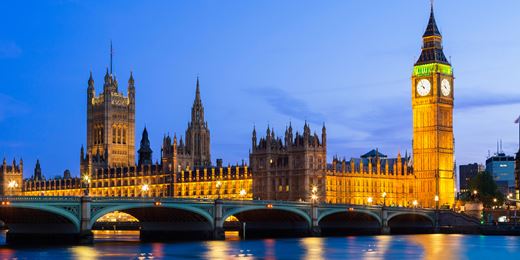UK government wins approval for Article 50 legislation
In order to be adopted the bill on Brexit needed the backing of both lower and upper houses of parliament.
The Commons voted to disagree with two changes made in the Lords to the European Union (Notification of Withdrawal) Bill, which gives the Prime Minister the power to choose when to begin the two-year Brexit talks.
Addressing MPs yesterday, Mrs May said the Bill could now receive formal assent from Queen Elizabeth II “in the coming days” – a process that would leave the Prime Minister free to start Brexit.
The amendment calling for the residential rights of European to be protected was lost in the Lords by 274 votes to 135.
Up to 10 Conservatives could abstain from voting today, although the support of eight Democratic Unionists and roughly six Labour Brexiteers makes a government defeat unlikely.
In a separate report The Guardian noted that founder of The3million, the grassroots organisation lobbying for the rights of European Union citizens, said he felt “utter desperation” that they are now destined to become bargaining chips.
The Lords EU Committee said determining the rights of two million United Kingdom nationals living in the EU would be a “complex and daunting” part of exit talks.
The rand strengthened 0.6% to under R16/£ on Tuesday as the pound tumbled after UK Prime Minister Theresa May was given the go-ahead to trigger Brexit.
Anna Soubry, a Tory MP and leading supporter of Open Britain, said: “This was a disappointing result for anyone who recognises the vital importance of parliamentary scrutiny of Brexit. Shame on the government for using people as chips in a casino, and shame on Labour for letting them”.
Brexit minister David Davis said it was in “everybody’s interests that we get a good outcome”, but said the government was “planning for the contingency, all the various outcomes”.
“We are now on the threshold of the most important negotiation for our country in a generation”, he added.
“We have a plan to build a Global Britain and take advantage of its new place in the wolrd by forging new trade links”.
There is speculation that May could wait to trigger Article 50 until after a Mar 25 summit in Rome to mark the EU’s 60th birthday, a moment it hopes will emphasise the bloc’s unity.
Nicola Sturgeon, the First Minister of Scotland and leader of the Scottish National Party, announced she would seek to begin another process, very much inspired by the current United Kingdom negotiations to leave the European Union: a second Scottish Independence referendum.
The First Minister says she will apply to the UK Government to authorise the referendum but that it should respect the will of the Scottish Parliament.
“What is more likely is that she will try and push a referendum vote to further down the road to, perhaps, after Brexit negotiations have concluded”.
Sinn Fein has been regularly calling for a vote for Northern Ireland to leave the United Kingdom and unite with the Republic of Ireland since Britain voted to leave the European Union in June while most voters in Northern Ireland voted to remain.
In 2014, voters in Scotland rejected a similar independence referendum by a margin of 55 percent to 45 percent.








